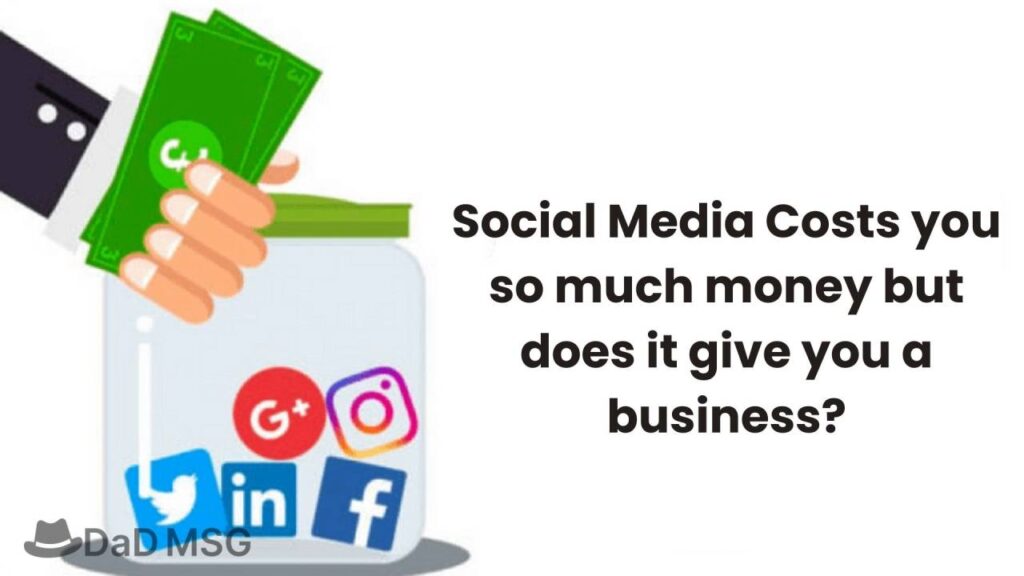Social media is beneficial. There is not even a single doubt about it.
Unless it is a horrible thing. Companies may expect to lose $4.3 million in worldwide sales on average as a result of social media blunders.
Companies that do not pay attention to how they promote themselves online might confuse and even upset customers, whose concerns can now be seen by millions of people all over the world thanks to social media. It is something to take care of because even a minor blunder can have major ramifications.
In truth, social media may be a terrific method to develop a business, but it can also be a great way to destroy it because:
- Nothing lasts forever on social media.
Nothing ever seems to die on social media. You will be battling or handling a thread or topic for the rest of your life once it starts. Even if you think you have put a problem behind you, it might re-emerge at any time. - Social Media Management Is Complicated
When it comes to structuring, administration, and organisation, managing social media accounts is a complex nightmare. The greater your internet presence, the more difficult it will be to maintain track of your accounts. - On social media, there are a lot of grammar freaks.
Everyone makes errors, and everyone is human, but Twitter, Tumblr, and Facebook appear to have a larger number of armchair quarterbacks than everywhere else. For the sake of word counts, an individual can utilise abbreviations and butcher spellings but do it as a corporation and you will quickly lose credibility. Except if you are a celebrity, in which case it is a different matter.
But how can you overcome these obstacles?
Companies are now picking their clientele, much as consumers do with the things they buy. Limiting their reach may appear negative, but instead of trying to appeal to the masses, it is more crucial to develop lucrative connections by reaching out to the appropriate target market.
Creating a brand persona entails humanising your company to provide a more personalised experience for your customers.
- Taking the lead
Is your company a trailblazer? Use that knowledge as a brand value to share with the market if your brand is at the forefront of your industry. Being the first implies you may be the leader of your newly founded category if you can represent that in your brand value. - Positioning of Polarity
Take a look at what makes your business exclusive. To set oneself out, find and employ a contrasting point. The majority of fast-food establishments serve unhealthy cuisine. Subway, on the other hand, come in with the image of healthy fast food, and it has set them apart from the competition.
Apple’s approach to creating beautiful goods, in contrast to IBM’s unappealing appearance, is another great example (to some). - Being an expert or specialist
Are you an expert in your field? Or perhaps you work in a niche industry? That might be the picture you wish to project to your clients. It is been proved that including expert advice or insider information in your social media post generates a lot of shares. - Smaller vs. Larger
Is it preferable to be bigger or smaller? That is dependent on your line of business. Television likes to play the big game, touting larger screens and clearer picture quality. Other devices and accessories want to boast about how little they are to be more portable. - Quicker vs. Sluggish
People appreciate quick service. If you have a reputation for offering quick service or releasing new items every other week, you may utilise that to your advantage to set yourself apart from the competitors.
However, there are certain advantages to being sluggish. As seen in the slow food movement, slower product launches can generate exclusivity. Limited-edition products are sold through that framework. - Premium vs. Cost-Effective
One may argue that high-end or luxury items should be sold at a higher price, whereas low-cost items should be sold in greater quantities. Depending on your product or service, the correct image might help you make more money. - Innovation vs. Tradition
Manufacturing processes are frequently used to assess innovation and legacy. The bread industry is a great example. Some individuals enjoy traditional coffee shop toast, while others prefer modern bread with unique toppings or additions. A well-crafted brand persona may help your business attract its target market, connect and interact with customers, and drive sales.
Branding is crucial in all forms. That should come as no surprise. Surprisingly, many firms have no understanding of how their brands appear to customers. Some consumers do not seem to understand the brand personalities that have taken years to develop. It is time to take social media seriously because it is one of the most effective tactics for keeping your customers loyal and maintaining a positive image.
Conclusion
Can social media help your business grow? Absolutely! In any case, just as social media presence may make or break a career, it can also destroy it and This perilous gradient necessitates forward planning on the part of small company owners.




